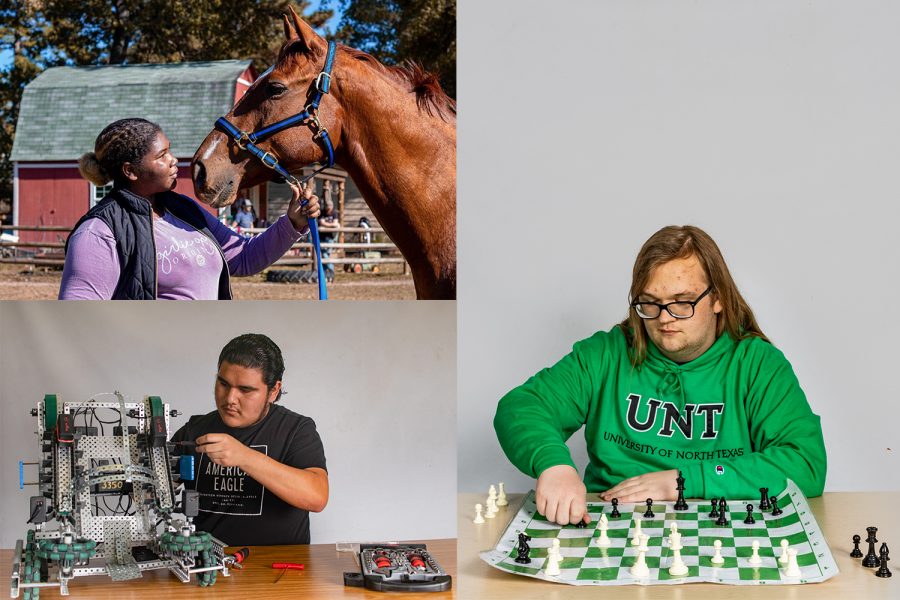Athletics or activities
Redefine what it means to play a sport
Photo by Abby Bunch
Students across campus remain involved with their extracurricular activities or sports. However, the rise of competitiveness in different activities across the country has brought into question what activities embody this term.
May 6, 2021
The English language is constantly evolving and adapting to fit the needs of its speakers as we alter our interests. An example is with the word “sport,” currently defined by the all knowing search engine Google.com as “an activity involving physical exertion and skill in which an individual or team competes against another or others for entertainment.”
However, the rise of competitiveness in different activities across the country has brought into question what activities embody this term. Junior Will Anderson plays chess, which many could consider a sport for the brain. A game that stimulates minds rather than muscles.
“I like the strategy behind it,” Anderson said. “I like all the different things you can do and how every game plays out different.”
Much like a basketball or football game, the end score of a chess tournament is anyone’s guess. Robotics could be defined as a sport for this reason, but junior Efren Cardinas does not lump his interest into that category.
“I wouldn’t call it a sport because it doesn’t need a lot of physical activity. It’s more mental,” Cardinas said. “I joined [robotics] during my sophomore year in high school because during freshman year I was a little busy with homework and getting used to high school. I didn’t know what to expect from middle school robotics to high school robotics, so I wanted to try it out.”
Chess’ and robotics’ unpredictable outcomes make for high-stakes competitiveness despite its lack of athletic activity. But what if an activity is athletic but not competitive? Junior Ryan Hampton currently rides horses independently, yet she does not currently compete due to the horseback riding’s price tag.
“I don’t have anything to compete with, but that’s a goal of mine: to get back into competition,” Hampton said. “Horses are, from my understanding, highly valued animals because of their usefulness. Horse sports, historically, were for the upper class. It hasn’t gotten cheaper; it’s just gotten more expensive because people have gotten richer and can afford better things.”
Although Hampton is not in the financial position to compete in equestrianism, she does not wander through grassy fields all in her lonesome. Learning to work with horses is like adjusting to working with a new teammate.
“The things you have to learn as a person to be in a partnership with these animals is really intriguing to me,” Hampton said. “You’re working with something that can’t speak your language. It’s cool how you can teach yourself how to coexist with each other on such a high plane of athletic activity.”
Connecting with things that do not speak is also an integral part of competing in robotics. Cardinas must understand the intricacies of technology to succeed in his hobby.
“In middle school, you deal with more Lego parts, but in high school I deal with metal and how to build a robot with that,” Cardinas said. “I like how simplistic it is with the Legos, but I like how with the metal, you aren’t limited by the shape of the parts. With the metal, you can be more creative.”
Cardinas is also able to communicate with others over shared passions in the robotics club.
“I just like how there are other people that understand robotics like I do and are as interested in it as me,” Cardinals said. “It’s a nice place where I get to show creativity and help build something with other people.”
The same messages of working with others and togetherness are apparent in Anderson’s activity as well.
“[I got into chess] probably around the seventh grade,” Anderson said. “A lot of my friends were doing it, and they seemed like they were having fun playing chess together after school.”
While Anderson and Cardinas found their hobbies just a few years ago, Hampton’s fascination with running through fields amongst four legged creatures began shortly after she could walk.
“I got into horses around three or four,” Hampton said. “I thought they were pretty and cool, and when I found out they weren’t all wild and you could ride and be friends with them, I was sold. [I like them now] partly for the same reasons as when I was three, but also I’ve fallen in love with the sport and the community of the horse world as well.”
Words may never have a one-size-fits-all definition that every English speaker can agree on. However, Hampton assures that equestrianism’s non-stop physical exertion demands her hobby a place under the word “sport.”
“Sports, by definition, are something you have to train for athletically, physically, mentally, emotionally,” Hampton said. “You very much have to do all of those things when it comes to horses, whether it’s competitive or not. Every time I’ve seen someone who doesn’t ride get on a horse for the first time, they come off sore. Why do you come off sore? Because your muscles are working to move the horse around. It’s a sport because you have to be fit for the sport and know what you’re doing just like every other sport does.”
















